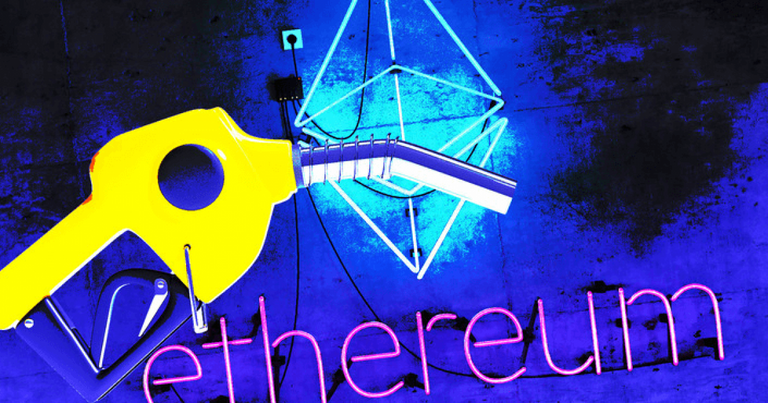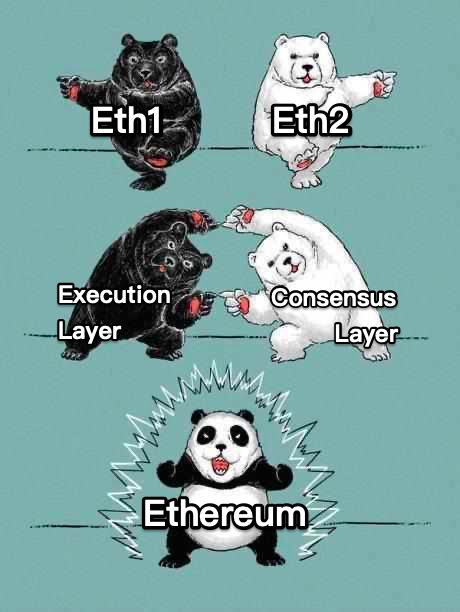Ethereum Foundation Makes it Clear - The 'Merge' Will Not Reduce Gas Fees
"According to a new clarification by the Ethereum Foundation on Wednesday, the network's upcoming proof-of-stake transitory upgrade — dubbed the 'Merge', — will not reduce gas fees" [Sun, Z. Ethereum Foundation clarifies that the upcoming Merge upgrade will not reduce gas fees. (Accessed August 18, 2022)]. Specifically in this regard, the Foundation wrote:
Gas fees are a product of network demand relative to the capacity of the network. The Merge deprecates the use of proof-of-work, transitioning to proof-of-stake for consensus, but does not significantly change any parameters that directly influence network capacity or throughput. With a rollup-centric roadmap, efforts are being focused on scaling user activity at layer 2, while enabling layer 1 Mainnet as a secure decentralized settlement layer optimized for rollup data storage to help make rollup transactions exponentially cheaper. The transition to proof-of-stake is a critical precursor to realizing this.
[Ethereum.Org. Guide to Ethereum Upgrades : The Merge. (Accessed August 18, 2022)].
The Foundation reminds us that "[t]he Merge represents the joining of the existing execution layer of Ethereum (the Mainnet we use today) with its new proof-of-stake consensus layer, the Beacon Chain. It eliminates the need for energy-intensive mining and instead secures the network using staked ETH. A truly exciting step in realizing the Ethereum vision – more scalability, security, and sustainability" [Id].
Furthermore,
It's important to remember that initially, the Beacon Chain shipped separately from Mainnet. Ethereum Mainnet - with all it's accounts, balances, smart contracts, and blockchain state - continues to be secured by proof-of-work, even while the Beacon Chain runs in parallel using proof-of-stake. The approaching Merge is when these two systems finally come together, and proof-of-work is replaced permanently by proof-of-stake.
[Id].
In addressing when Ethereum will tackle the issue of high gas fees, let's first review some basics concerning the collection of 'gas'.
What exactly is 'gas'? Well, "[g]as refers to the unit that measures the amount of computational effort required to execute specific operations on the Ethereum network. Since each Ethereum transaction requires computational resources to execute, each transaction requires a fee. Gas refers to the fee required to conduct a transaction on Ethereum successfully" [Ethereum.Org. GAS AND FEES. (Accessed August 18, 2022)].
With the 'London Upgrade' as well as EIP-1559, gas fees were made to be more predictable for Ethereum chain users, but neither specifically addressed the issue of high gas fees. And now we have the Ethereum Foundation clarifying to us that the 'Merge' will not provide relief from the high fees either. We all know something must be done relative to this issue. But we will have to wait a bit longer for this relief.
High gas fees are due to the popularity of Ethereum. Performing any operation on Ethereum requires consuming gas, and gas space is limited per block. Fees include calculations, storing or manipulating data, or transferring tokens, consuming different amounts of "gas" units. As dapp functionality grows more complex, the number of operations a smart contract performs also grows, meaning each transaction takes up more space of a limited size block. If there's too much demand, users must offer a higher tip amount to try and outbid other users' transactions. A higher tip can make it more likely that your transaction will get into the next block.
[Id].
"The Ethereum scalability upgrades should ultimately address some of the gas fee issues, which will, in turn, enable the platform to process thousands of transactions per second and scale globally [...] Ethereum consists of a set of upgrades that improve the scalability, security, and sustainability of the network. Although each is being worked on in parallel, they have certain dependencies that determine when they will be deployed" [Ethereum.Org. Upgrading Ethereum to radical new heights. (Accessed August 18, 2022)].
These scalability upgrades are as follows:
So with respect to the lowering of gas fees for using the Ethereum chain, it appears that we will be required to wait (somewhat impatiently) until the 'Sharding' upgrades take place in 2023 and 2024. So it seems we must heed the clarification from the Ethereum Foundation that the 'Merge' coming supposedly next month, will do nothing to lower the high gas fees for using Ethereum.
Parenthetically, while researching this article, your author came upon this interesting but unrelated tidbit.
Where did the term 'Eth2' go?
The Foundation answers this as follows:
The term 'Eth2' is being phased out in preparation for The Merge [...] After merging 'Eth1' and 'Eth2' into a single chain, there will no longer be two distinct Ethereum networks; there will only be Ethereum. To limit confusion, the community has updated these terms:
- 'Eth1' is now the 'execution layer', which handles transactions and execution.
- 'Eth2' is now the 'consensus layer', which handles proof-of-stake consensus.
[Id].
"How does this update change the Ethereum roadmap? It doesn’t! It’s important to understand that this renaming represents a change in naming only. The features on Ethereum’s current roadmap (i.e. the merge, sharding) and future features will still happen on the same timeline" [Ethereum.Org. The great renaming: what happened to Eth2?. (Accessed August 8, 2022)].
Posted Using LeoFinance Beta

.png)

.png)
